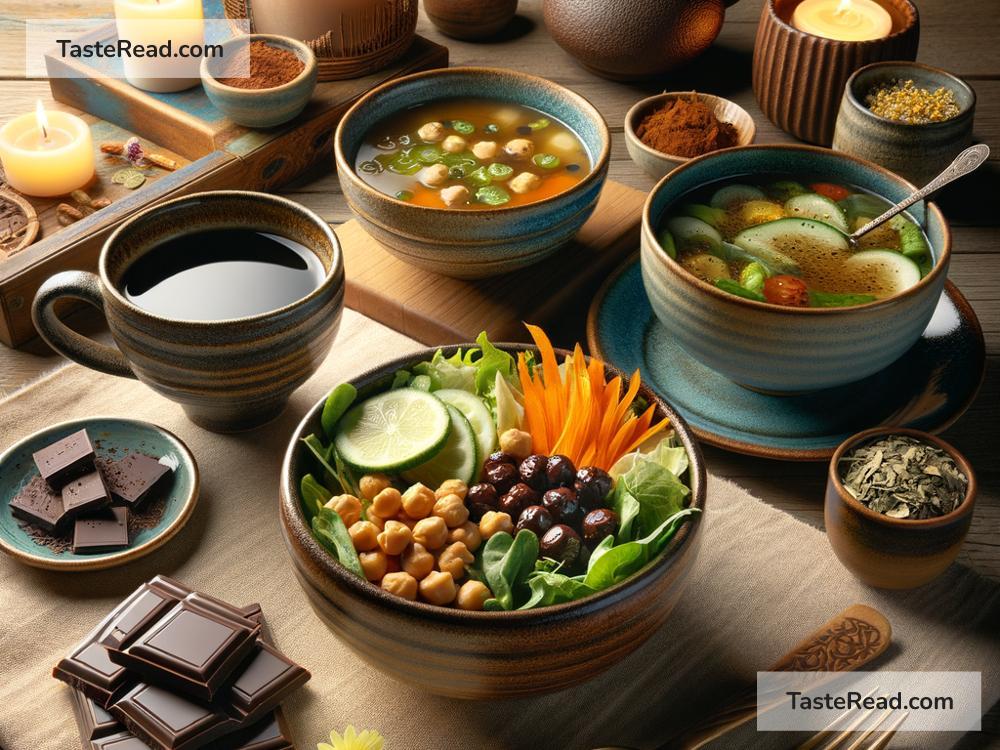Foods for Reducing Interpersonal Conflict: Eat for Peace!
Food is the stuff of life—we need it to stay healthy, energized, and happy. But did you know that what’s on your plate can also affect how you interact with others? The way we feel emotionally often depends on what we eat. Some foods help keep us calm, focused, and patient, while others can make us irritable or stressed. By making better food choices, you can improve your mood and even prevent interpersonal conflicts before they begin. Let’s explore how your diet can help you build healthier relationships and create harmony with others.
The Link Between Food and Conflict
Have you ever snapped at someone after skipping a meal? Or felt cranky when you ate too much sugar? That’s because food directly impacts our mood and behavior. When your body lacks essential nutrients, your brain doesn’t function at its best. Poor nutrition can lead to feelings of fatigue, stress, and even aggression—all of which make arguments and misunderstandings more likely.
On the other hand, the right foods can nourish your body and mind, boosting your ability to stay calm and empathetic during tense situations. Eating well encourages a balanced outlook, which opens the door to smoother communication and better relationships.
Foods That Promote Calmness and Positivity
If you want to reduce conflict in your daily life, you may want to adjust your diet. Let’s look at some foods that can help you feel peaceful, patient, and ready to tackle challenges.
1. Fruits and Vegetables: Nature’s Stress Relievers
Fruits and vegetables are packed with vitamins, minerals, and antioxidants that support brain health. They also help regulate your body’s stress levels, which may reduce feelings of anger and frustration.
-
Bananas: Bananas contain magnesium and tryptophan, which can calm your nerves and improve your mood. Plus, their natural sugars give you steady energy, making it easier to stay focused during conversations.
-
Spinach: Spinach is full of magnesium, which helps your body cope with stress better. Eating spinach may help you feel relaxed and centered.
-
Avocados: Rich in healthy fats and potassium, avocados help lower blood pressure, keeping you calm in tense situations.
2. Whole Grains: Steady Energy for Your Brain
Whole grains like oatmeal, brown rice, and quinoa provide slow-release energy for your body and mind. They keep your blood sugar stable, reducing mood swings that can lead to irritation.
-
Oats: A bowl of oatmeal can help you stay calm by supporting serotonin production—a brain chemical linked to happiness and relaxation.
-
Quinoa: Quinoa is high in protein and B vitamins, which play a key role in managing stress and boosting your emotional resilience.
3. Foods Rich in Omega-3 Fatty Acids: Brain Boosters
Omega-3 fatty acids are powerful nutrients that support brain health and emotional balance. They reduce inflammation in the brain and can lower levels of anxiety and depression, which may help you stay level-headed.
-
Salmon: Fatty fish like salmon is packed with omega-3s, making it a great choice for promoting mental clarity and emotional control.
-
Chia Seeds: These tiny seeds are an excellent plant-based source of omega-3s, making them ideal for vegetarians and vegans.
4. Nuts and Seeds: The Snack for Patience
Nuts and seeds are brimming with nutrients that help reduce stress hormones and boost your mood.
-
Almonds: Almonds are rich in magnesium, vitamin E, and healthy fats that can help soothe your nerves.
-
Pumpkin Seeds: Rich in zinc and magnesium, pumpkin seeds are a natural way to improve focus and reduce irritability.
5. Herbal Teas: Sip Your Way to Serenity
Drinks matter too! Herbal teas like chamomile and green tea can calm your mind and reduce emotional conflict.
-
Chamomile Tea: Known for its calming effects, chamomile tea is a wonderful way to unwind when emotions are running high.
-
Green Tea: Green tea contains the amino acid L-theanine, which can promote relaxation without making you feel sleepy.
Foods to Avoid During Conflict
While there are foods that can help, there are others you should avoid in stressful moments. These “conflict-triggering” foods can increase stress and make it harder to deal with negative emotions.
-
Sugary Snacks: While candy and desserts might give you a quick energy boost, they often lead to a blood sugar crash that makes you irritable.
-
Caffeine: Drinking too much coffee or energy drinks can make you jittery and more prone to snapping at others.
-
Processed Foods: Chips, fast food, and other unhealthy snacks can fuel fatigue and irritability, making it harder to stay calm in arguments.
The Bottom Line
Peace begins with you—and with what you put on your plate! By choosing foods that nourish your body and soothe your mind, you can stay calm, communicate effectively, and build stronger relationships. Plus, eating these healthy options often has other benefits, such as better health, improved focus, and increased energy.
Next time you feel tension brewing in a conversation, consider whether your diet might be playing a role. Grab a calming snack like almonds or a cup of chamomile tea instead of reaching for sugary treats or caffeine. Eating for peace isn’t about being perfect; it’s about setting yourself up for success in both life and relationships. With healthier food choices, you’ll be well on your way to a happier, more peaceful you!


